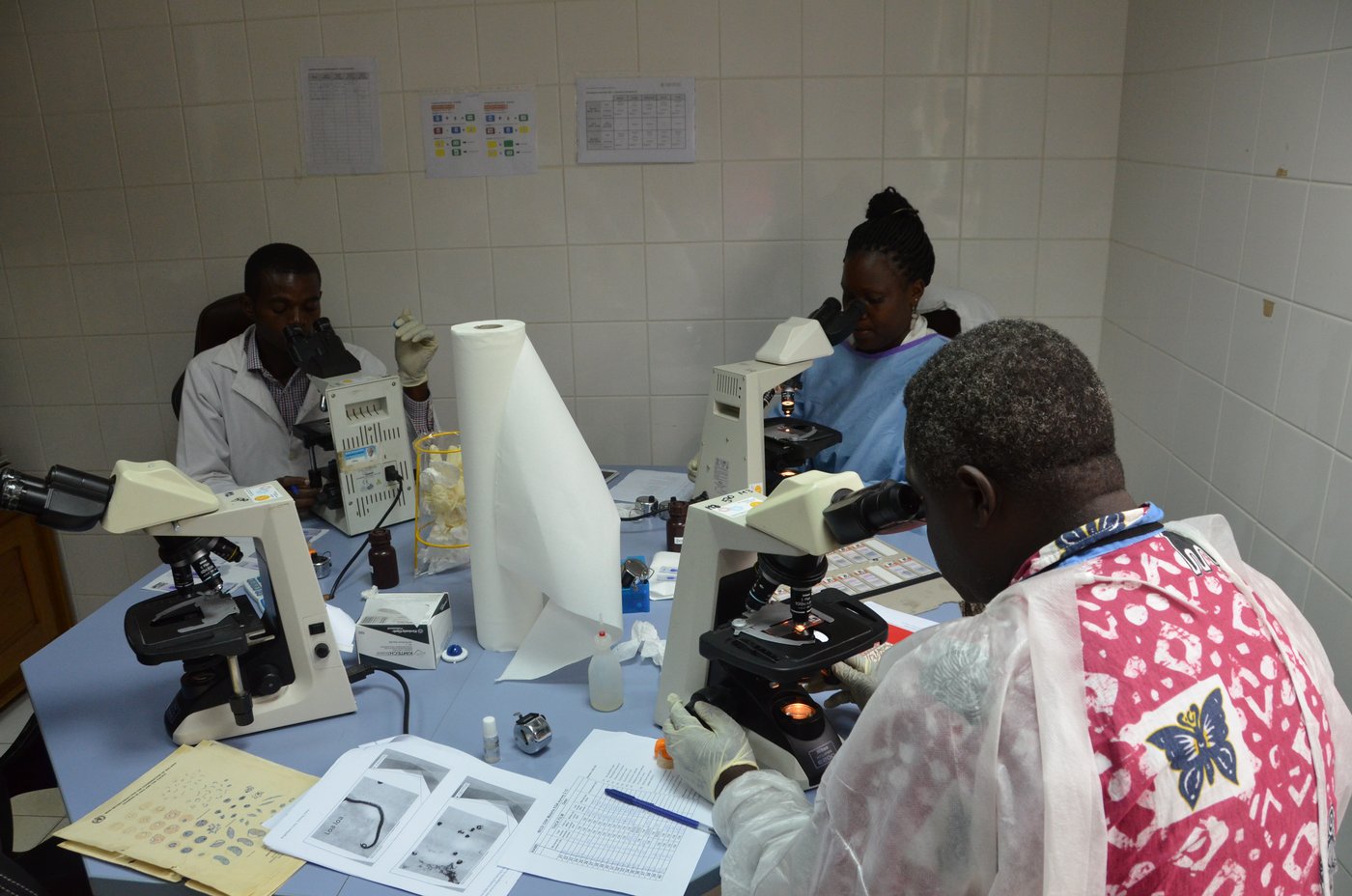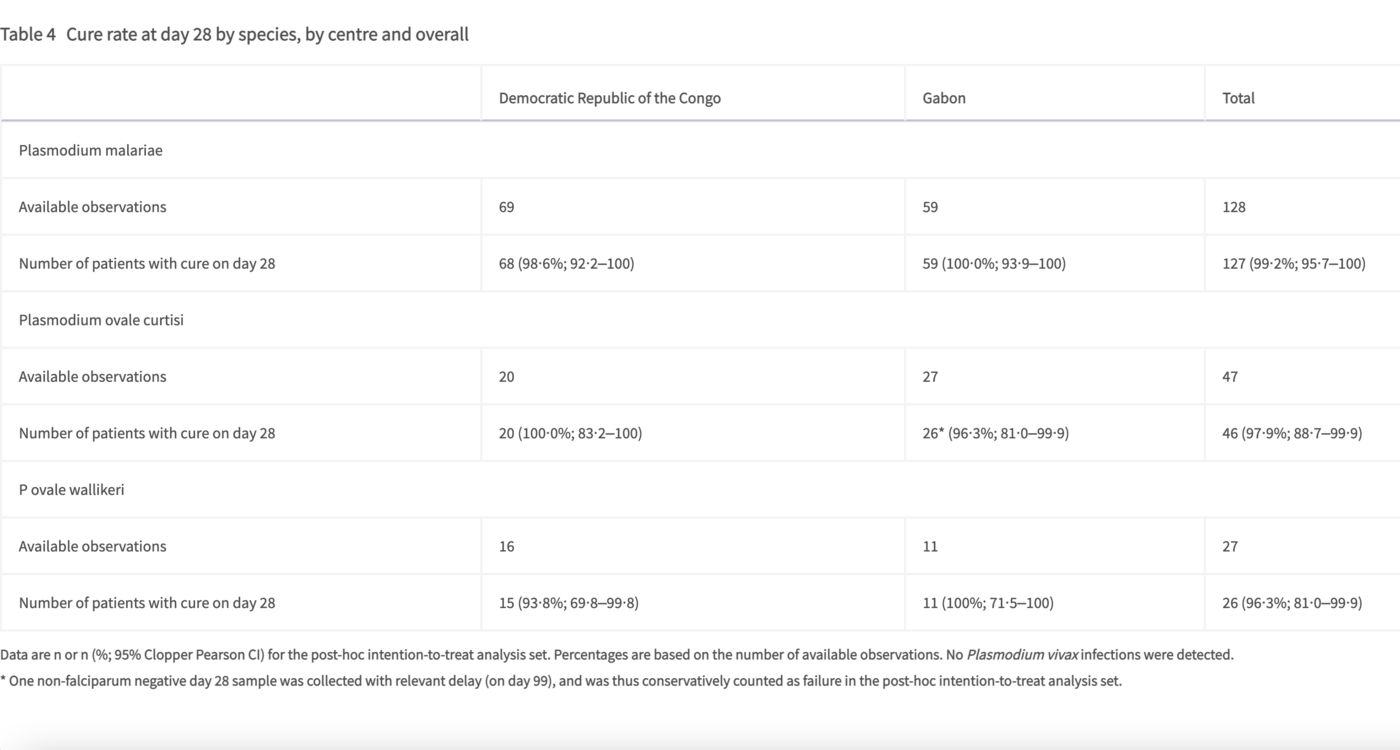Combination drug against malaria
Internationale Kooperation zeigt Wirksamkeit von Pyronaridin-Artesunat gegen vernachlässigte Malariaspezies und Malaria mit Mischinfektionen.
Neue Malariamedikamente werden meist nur für die Malaria tropica getestet, nicht aber für andere Malariaerreger. Verfügbare Präparate finden zwar breite Anwendung, sind jedoch dementsprechend eingeschränkt zugelassen. Eine Forschungsgruppe um Mirjam Groger und Michael Ramharter aus der Abteilung Klinische Forschung des BNITM hat dies zum Anlass genommen, die Wirksamkeit des wichtigen Kombinationspräparats Pryonaridinin-Artesunat für vernachlässigte Malaria-Erreger zu testen. An der Studie beteiligt waren die NGO Medicines for Malaria Venture, Shin Poong Pharmaceuticals, das Exzellenznetzwerk CANTAM, das Institut für Tropenmedizin Tübingen sowie die afrikanischen Partnerinstitutionen CERMEL in Gabun und die Universität Kinshasa, DR Congo. Die Ergebnisse sind in der Fachzeitschrift The Lancet Microbe erschienen.
High-quality studies on the therapeutic efficacy and effectiveness of drugs against the malaria forms Plasmodium ovale spp. and Plasmodium malariae are rare. Research and development mostly neglect these forms of malaria: Diagnostics are demanding, and the actual distribution is correspondingly insufficiently recorded. This makes the search for suitable study participants difficult. Depending on the country, the therapy recommendations for the different species therefore also differ - despite the lack of robust evidence.

Underestimated forms of malaria
The focus of malaria research in recent years and decades has been on Plasmodium falciparum, the pathogen responsible for most malaria cases and deaths, and to a lesser extent Plasmodium vivax. However, infections with Plasmodium ovale spp, Plasmodium malariae and mixed infections are estimated to cause more than one tenth of malaria cases in endemic areas such as Central Africa, and the trend is increasing. Undetected or untreated, these cases make it difficult to control and eradicate malaria. This makes it all the more important to have an effective and efficient drug that can be reliably used in endemic areas for the treatment of all forms of malaria.
Promising compound for the treatment of all forms of malaria
Mirjam Groger and her colleagues have now undertaken a so-called post-hoc analysis of malaria cases from the Democratic Republic of Congo and Gabon in the course of a phase III/IV real-world study of the Central Africa Clinical Research Network CANTAM. They wanted to investigate the efficacy and effectiveness of pyronaridine artesunate for the treatment of Plasmodium mixed infections as well as monoinfections not caused by Plasmodium falciparum. They analysed samples from a randomly selected contingent from the two sites from day 0, day 28 (±1 day) and from the case of a resurgence of malaria pathogens in the follow-up period by PCR and microscopy.
Of 1502 randomly selected samples from ill persons, 192 (12.8%) had mixed Plasmodium infections or non-Falciparum mono-infections at day 0. The cure rate after 28 days ranged from 96 to 99 per cent, depending on the malaria pathogen type.

Good news for future disease management
These high cure rates speak for the use of pyronaridine artesunate in routine clinical practice, says the study's first author, Mirjam Groger:
"Our results provide confidence that pyronaridine artesunate can be used to effectively treat acute malaria infections with all Plasmodium spp. reported in this study. This may greatly facilitate future disease management of malaria patients. This is because reliable diagnosis of non-falciparum and mixed-species malaria using rapid tests and microscopy is difficult."
She added that the type of data analysed underscores not only the efficacy but also the effectiveness of pyronaridine artesunate under "real-world" conditions.
Original publication
Groger, Mirjam et al., “Effectiveness of pyronaridine-artesunate against Plasmodium malariae, Plasmodium ovale spp, and mixed-Plasmodium infections: a post-hoc analysis of the CANTAM-Pyramax trial.” The Lancet Microbe (Aug. 2022, online ahead of print, May 2022).
Contact person
Dr Mirjam Groger
Research Group Leader
Phone : +49 40 285380 480
Email : groger@bnitm.de
Dr Eleonora Schoenherr
Public Relations
Phone : +49 40 285380-269
Email : presse@bnitm.de
Julia Rauner
Public Relations
Phone : +49 40 285380-264
Email : presse@bnitm.de






